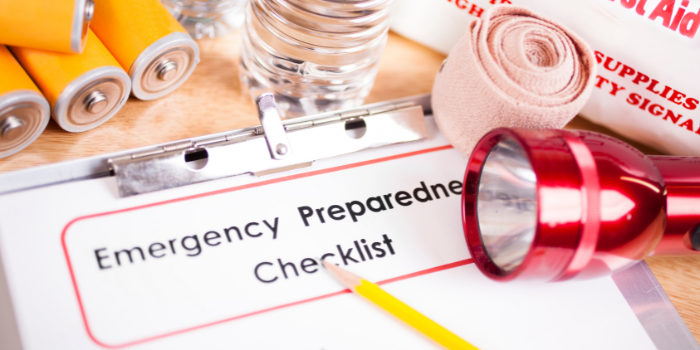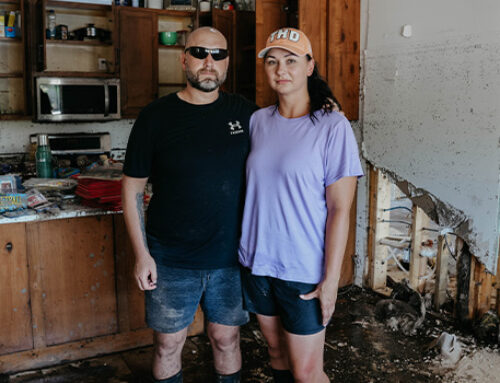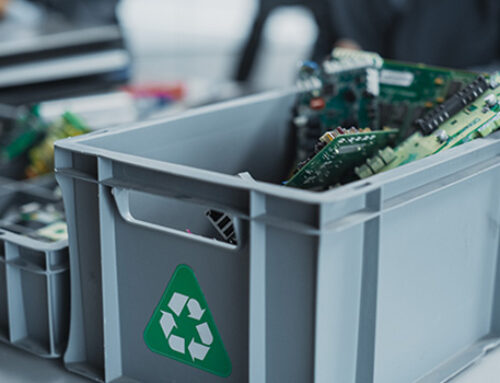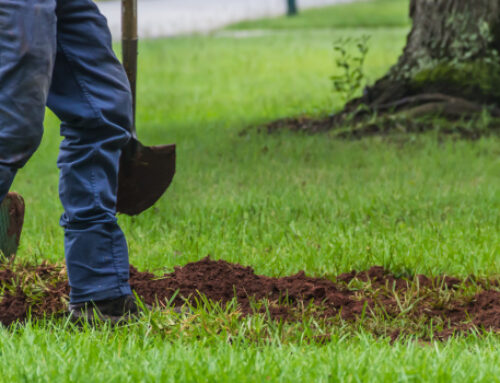Hurricane season can be a stressful time for both homeowners and board members. To help make sure you are prepared should a storm blow into your neighborhood, we’ve created an in-depth guide that will help you determine your risk and know how to best prepare.
Evaluate Your Risk
The first step to preparing for hurricane season is evaluating your risk based on where you live. While hurricanes are most commonly associated with coastal communities, the effects of the storm can reach hundreds of miles inland.
To help determine your risk level, you can reference FEMA’s National Risk Index Hurricane map, which can be found here.
If your risk level falls in the very high to relatively high range, it’s best to prepare for the full force of heavy winds, storm surges, and flooding that could impact your area. If you’re further inland with a lower risk level, it’s still best to prepare ahead of time for potential flooding.
Have Supplies at the Ready
Rather than wait until a hurricane watch hits your area, it’s best to stock up ahead of time. By preparing early, you can avoid long grocery store lines and empty aisles.
We recommend stocking up on the following supplies at the start of Hurricane Season:
- Water
- Food with long shelf-life that can be prepared without electricity
- Pet food
- Diapers and formula
- Toilet paper
- Feminine hygiene products
- Batteries and power banks
- Flashlights
- Emergency cash
- Medicines and Prescriptions
- Materials for boarding up windows
- First Aid Kit
By having the supplies at the ready, you can have peace of mind that you are prepared should a hurricane, or any other type of emergency, impact your household.
Make A Plan
If a hurricane heads your direction, you’ll need to know where to go, how to get there, and how to stay in touch with your loved ones. By planning early, you can eliminate stress by making these decisions well ahead of time.
Let’s break down what you should consider when planning for a potential hurricane:
- Know Your Zone: If you live near the coast and are in a higher risk category, then there is likely an evacuation zone for your area. To see if you live in a hurricane evacuation area, contact your local government/emergency management office or check weather.gov.
- Prep a 72-hour Bag: Keep a bag packed with clothes, toiletries, protein bars, water, cell phone chargers, first aid supplies, medications, cash, batteries, hand sanitizer, masks, and essential supplies. If you need to evacuate, this will remove the stress of last-minute packing and get you on the road quicker. For more information, here’s a handy guide to preparing a 72-hour bag: https://www.ready.gov/kit
- Don’t Leave Important Documents Behind: In the event of your home flooding, your important documents could be damaged or destroyed. Pack your important documents in a waterproof container that can be easily packed with you when evacuating.
- Plan Your Route: Have multiple evacuation routes handy. If you find that you need to evacuate, you can anticipate that most people in your area are likely coming to the same conclusion. To avoid getting caught in heavy traffic on your way out of town, have multiple routes planned that can aide you in reaching safety.
- Pick a Destination: If you need to evacuate to safety, have a destination in mind of where you will ultimately stay. You may choose to stay with family or friends that live in nearby, lower-risk areas. If so, keep their location in mind when planning your evacuation routes. If not, find a destination with an abundant number of hotels. Home-sharing apps, like Air BnB and VRBO, can also come in handy, if you find that hotels are full when you reach your destination.
- Stay in Contact: Set up a family emergency communication plan. During a natural disaster it’s possible that you might find yourself without Wi-Fi or cell phone coverage. Prepare ahead of time so your family knows how and where to reach you in the event of an emergency.
- If You Have a Disability: To ensure your safety, there are a few extra steps that can help you in the event of a hurricane.
- If you use an electric wheelchair or scooter, have a manual wheelchair available for backup.
- Check your medical alert system. Some alerts will require a landline phone, which may not be available during power outages.
- For more preparation tips, we recommend reviewing the following article: https://www.redcross.org/get-help/how-to-prepare-for-emergencies/inclusive-preparedness-resources.html
Prepare Your Home
The threats from a hurricane range from high winds and heavy rainfall to tornadoes and inland flooding. By taking the necessary steps to safe proof your home at the start of hurricane season, you can help minimize any damage and save yourself money in repairs.
- Stay Insured: The first step to protecting your home from a hurricane is ensuring that you have proper coverage. Verify with your insurance company if your home is fully protected. While most homeowners’ insurance policies will cover wind damage, it’s possible that you may need additional flood coverage.
- Keep Trees Trimmed: Remove or trim damaged trees and limbs. This will minimize the amount of tree debris that could fall due to heavy winds.
- Clean Your Gutters: Clear your gutters of any clogged debris and secure loose rain gutters and downspouts to help prevent water damage to your home.
- Stay Secured: If possible, retrofit to secure and reinforce the roof, windows, and doors, including the garage doors to minimize damage. Also, if a hurricane is imminent, secure any loose patio furniture or bring it inside.
- Cover Windows: Keep materials handy for covering windows. Whether you use plywood or storm shutters, you want to ensure that you have a strong layer of protection over all glass windows and doors.
- Stay Powered: If you live within a hurricane risk zone, then a portable generator is a good investment in the event of a power outage. Just remember to keep generators and other alternative heat sources at least 20 feet away from windows and doors and protected from moisture. Also, never try to power the house wiring by plugging the generator into a wall outlet.
- Elevate Your Belongings: Move belongings to the highest possible floor, this will help protect your belongings from any potential flooding.
- Build a Safe Room: If you are in a high-risk area that sees a high number of hurricanes, then a safe room might be a good addition to your home. Check out FEMA’s guide to safe rooms here: https://www.fema.gov/emergency-managers/risk-management/safe-rooms
Prepare Your Community
If you are a board member, you may be wondering how to keep your community safe and organized in the event of a hurricane. We recommend checking out JellyBird’s article on Proactive Planning for Disaster Management: https://jellybirdhoa.com/proactive-planning-for-disaster-management/
In that article you’ll learn how to create a disaster plan for your community and how to keep your community safe in an emergency.
Stay Safe
Above all else, in the event of a hurricane, it’s important that you stay safe. Here are some key safety tips to follow:
- Pay close attention to storm updates. Have a portable radio handy in the event of a power outage to stay properly informed.
- Follow all evacuation notices. While it may be tempting to stay home, those evacuation orders are placed with your safety in mind. If you feel that an evacuation may be imminent, start making your last-minute arrangements to get out of town safely.
- Stay inside. Go to a safe area in your home, such as an interior room, closet, or downstairs bathroom. Avoid all windows, skylights, and glass doors.
- Keep your refrigerator door closed if you lose power. This will help you keep the contents of your fridge cooler for longer to help delay spoilage. However, be sure to toss any foods that may have reached an unsafe temperature.
- Turn around don’t drown. Avoid driving or walking through flood waters. Just six inches of moving water is enough to knock you down and one foot of moving water can sweep your vehicle away.
- Wait until it is safe. If you evacuated, you may be anxious to get home immediately after the storm, but it’s important to wait until authorities advise that it is safe to do so.
Check on your Neighbors
While you are making your plans for hurricane season and gathering supplies, try to remember those in your community that may have a difficult time doing so. Share your hurricane plan with your neighbors and see if anyone may need assistance in creating their plan or may need to help evacuating in the event of an emergency. By reaching out and offering a helping hand, you could potentially be saving someone’s life.
Taking the steps to properly prepare for hurricane season will not only ensure the safety of you and your loved ones, but it will help alleviate stress and tension. For more information and a list of hurricane related resources, we recommend reviewing the National Weather Service’s Hurricane Safety Tips and Resources page, which can be found here.







